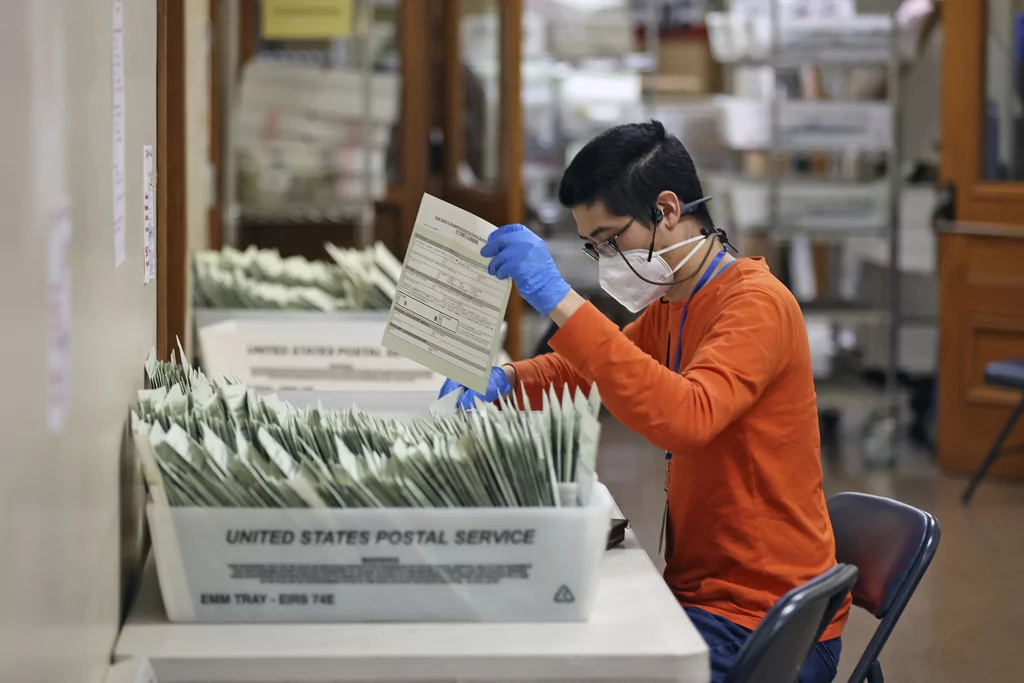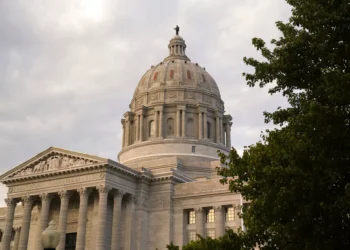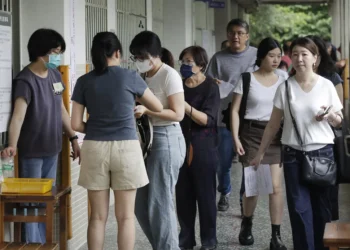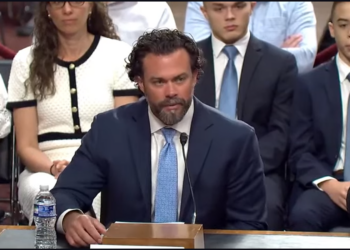A case before the Supreme Court this fall could determine whether federal candidates and political groups have the right to challenge state voting laws in court, potentially opening the door to new legal challenges against policies that allow ballots to be counted after Election Day.
At issue is an Illinois law that permits mail-in ballots to be counted up to 14 days after Election Day, as long as they are postmarked on time. The justices won’t weigh the law’s legality, at least not yet. Instead, they’ll decide whether candidates harmed by such policies can even get their foot in the door to sue.

Two prominent conservative-leaning election integrity organizations, the Honest Elections Project and Restoring Integrity and Trust in Elections, have filed briefs supporting the lawsuit, urging the court to reverse a lower-court ruling blocking the challenge on standing grounds.
“If political candidates do not have the right to sue over illegal practices that harm election integrity, who does?” said Honest Elections Project Executive Director Jason Snead. “Blocking candidates from court shuts the door on future lawsuits that could stop states from ignoring federal election rules.”
The lawsuit was brought by Rep. Mike Bost (R-IL) and two former presidential electors. They claim that Illinois’s policy conflicts with federal law, which establishes a uniform election day for all federal contests as the Tuesday following the first Monday in November, and argue that extending ballot receipt deadlines beyond that date is unlawful.
President Donald Trump‘s administration has also thrust its support behind Bost, with Justice Department Solicitor General D. John Sauer submitting an amicus brief urging the high court to find standing for the Illinois lawmaker.
Last August, the United States Court of Appeals for the Seventh Circuit dismissed the suit, ruling that Bost lacked standing to sue because he had not shown a concrete injury. Honest Elections Project says that decision broke from the approach of at least eight other federal appeals courts that have recognized “political competitor standing,” a legal doctrine allowing candidates to challenge policies that may hurt their campaigns.
In its amicus brief, HEP outlines three specific injuries that support standing: the possibility that counting late-arriving ballots could change the outcome in a zero-sum election, the diversion of campaign resources to monitor ballots arriving during the 14-day post-election window, and a candidate’s direct stake in the lawful and accurate tallying of votes. The group argues that any one of those harms should suffice to allow the case to proceed.
RITE, which also filed a brief alongside its affiliated political action committee, emphasized the broader consequences for election litigation nationwide.
“It should go without saying that candidates have legal standing to challenge unlawful election rules that directly impact how they run and win campaigns,” said RITE President Justin Riemer. “Yet states have for too long used standing as a shield to maintain unlawful election rules like the one congressman Bost challenges. We urge the Supreme Court to affirm his standing in this case.”
RITE also criticized a judicial double standard, where liberal groups are routinely granted standing to sue over voting rules, while conservative candidates or organizations are blocked. It asks the court to adopt a uniform, neutral rule for election-related standing that applies across the political spectrum.
The stakes go well beyond Illinois. More than a dozen other states count mail-in ballots received after Election Day, though the number of days permitted varies. Some states accept ballots only until 5 p.m. the following day, while others, including California, Washington, and Illinois, continue accepting them for a week or more.
HEP and RITE argue that without a clear ruling from the Supreme Court affirming candidates’ right to challenge these policies, states could continue expanding ballot deadlines beyond what federal law permits, with no avenue for judicial review.
ELECTION SECURITY GROUPS URGE SUPREME COURT TO BLOCK LATE-ARRIVING BALLOTS
A ruling in Bost’s favor would send the case back to the lower courts to be heard on the merits. That could pave the way for future challenges to similar laws in other states, including an ongoing lawsuit in Mississippi, and could influence the legal landscape heading into the 2026 midterm elections and 2028 presidential race.
Oral arguments are expected this fall, with a decision likely by spring 2026.
















